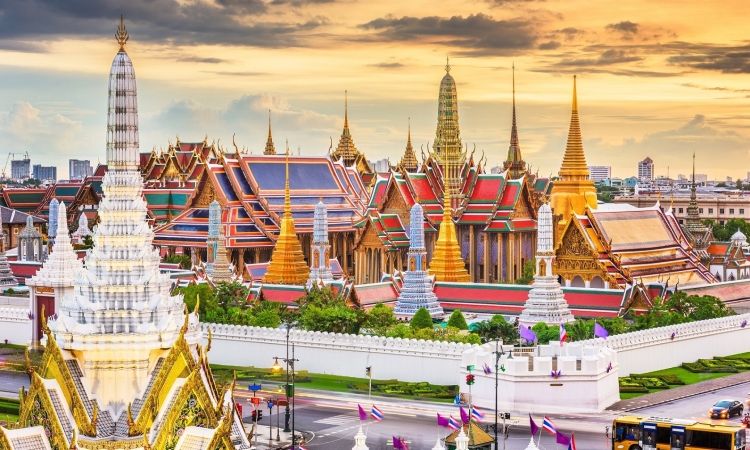Moving to another country is an exciting adventure, but adapting to a new culture can be challenging. From learning social norms to overcoming culture shock, the transition takes time and effort. Whether you’re relocating for work, study, or a fresh start, understanding how to navigate cultural differences can make the experience more rewarding.
Understanding culture shock
Culture shock is a natural response to unfamiliar surroundings and can affect emotions, behaviors, and physical well-being. It typically unfolds in stages:
- Honeymoon phase: The excitement of being in a new environment overshadows any difficulties. Everything feels fresh and interesting, and you may enjoy exploring different customs, food, and traditions.
- Negotiation phase: Reality sets in as differences between your home country and the new culture become more apparent. Frustration, confusion, or loneliness may arise, particularly when facing language barriers or unfamiliar social norms.
- Adjustment phase: As you develop routines and better understand local customs, everyday interactions become easier. You may feel more comfortable with the language, and cultural differences become less overwhelming.
- Adaptation phase: At this point, you feel fully integrated into your new environment. You understand and respect the culture, engage in local traditions, and feel a sense of belonging.
Recognizing these stages can help you manage expectations and emotions during the transition. Being patient with yourself and focusing on gradual progress will make adjusting to life overseas easier.
Tip: Observe how people behave in public spaces and ask respectful questions if you’re unsure about certain customs.
How can you adapt to cultural differences when moving abroad?
Adapting to cultural differences requires openness, curiosity, and effort. Here are key ways to ease your transition:
Learn the language
Learning key phrases and basic conversational skills can improve daily interactions, even if fluency takes time. Locals appreciate it when newcomers try to communicate in their language.
Seek to understand social norms
Every culture has unique greetings, personal space, and etiquette customs. Being aware of these can prevent misunderstandings and help you connect with locals.
Embrace local traditions
Attending cultural events, trying local cuisine, and participating in community activities help build connections and deepen your appreciation of your new home.
Tip: Use language learning apps and practice with native speakers to build confidence. Be open to new experiences, even if they seem different from what you’re used to.
What are the most effective strategies for cultural adaptation after an international move?
Successful cultural adaptation depends on proactive engagement and flexibility. Some key strategies include:
Build a support system
Connecting with other expats, locals, or professional networks can help you feel less isolated. Social support makes adaptation easier and provides practical advice.
Develop a routine
Establishing familiar habits, like morning coffee at a local café or regular exercise, provides stability and comfort in an unfamiliar environment.
Stay patient and flexible
Cultural adaptation takes time, and challenges are part of the process. Instead of resisting differences, view them as opportunities to learn and grow.
Tip: Incorporate aspects of your home culture into your routine while embracing new local customs.
How do you deal with culture shock when living in a new country?
Culture shock can cause emotional highs and lows, but there are ways to manage it effectively:
- Acknowledge your feelings: It’s normal to feel overwhelmed at times. Recognizing your emotions can help you process them and find constructive coping methods.
- Maintain connections with home: Staying in touch with friends and family provides comfort, but be mindful not to isolate yourself from your new surroundings.
- Take care of yourself: Eating well, exercising, and getting enough rest can improve your mood and energy levels during adjustment periods.
Tip: Talk to other expats who have experienced similar challenges and set regular check-ins with loved ones while building relationships in your new country.
What resources can help you navigate cultural challenges?
Accessing the right resources can make adapting to a new culture much easier. Many cities and organizations offer cultural orientation programs to help newcomers understand local customs, social norms, and expectations. These programs provide valuable insights into everyday life and help you integrate more smoothly into your new environment.
Language exchange groups are another great resource. Practicing with native speakers improves communication skills and helps build friendships and connections within the local community. These groups allow you to learn the language naturally while gaining a deeper appreciation for the culture.
Professional moving assistance can also ease the logistics of moving abroad. Relocation services, such as those provided by JK Moving, help with the logistical challenges, including packing, transportation, and customs clearance. With expert support, you can focus on settling into your new home and confidently adapting to your new surroundings.
Tip: Research international moving companies that offer services tailored to expats, including storage, customs assistance, and settling-in support.
Embracing the journey with the right support
Adjusting to a new cultural environment takes time, patience, and effort. Learning about local customs, building relationships, and staying open to new experiences can make your transition smoother and more fulfilling.
A reliable moving company can also reduce stress and make settling in easier. Look for an international moving partner to provide expert assistance with every step of relocation, from packing and transportation to customs clearance and delivery so you can confidently focus on adapting to your new life.


